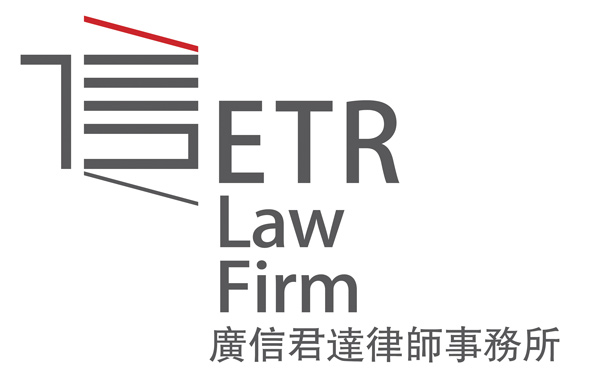A typhoon is a common form of natural disaster in China’s coastal regions and, only recently, Guangzhou fell victim to severe and prolonged rainfall. While it may be impossible to prevent catastrophic weather from happening, it is within our abilities to mitigate the potential property damages beforehand and strive to remedy the situation afterwards.
This article focuses on compensation liability for damages to vehicles sustained in typhoon-induced rainfall.
Insurance companies

Partner
ETR Law Firm
Insurance companies provide compensation for vehicles damaged after typhoon-induced rainfall based on the coverage of comprehensive car insurance or flood damage insurance purchased by vehicle owners.
In most cases, car insurance covers all or partial losses caused by lightning strikes, heavy rain, flooding, hailstorms, tsunamis, as well as costs associated with vehicle recovery, cleaning, and electrical damage incurred due to submersion.
However, if the vehicle owner attempts to restart the engine after the vehicle has stalled due to water submersion, insurance companies may consider it as exacerbating the damages and refuse to pay or reduce the compensation. If the vehicle is damaged due to parking in a garage, the insurance company can compensate the vehicle owner first and then exercise subrogation rights to hold the property management company liable.
Property management companies
Regarding compensation claims for property damage, the civil law stipulates three principles of liability: liability for fault; liability without fault; and equitable liability. In practice, after typhoon-induced rainfall, property management companies are typically held liable for compensating the owners of vehicles damaged by submersion based on the principle of fault liability, with the compensation proportion often determined by the degree of their negligence.
According to article 942.1 of the Civil Code, property service providers should properly maintain, repair, clean, green and manage the common property areas of owners in accordance with the agreement and the nature of the property. They should also maintain the basic order of the property service areas and take reasonable measures to protect the owners’ personal and property safety.
On such a basis, the judgment criteria for determining whether the property management company has fulfilled its duties fully and aptly include:
-
- Before the occurrence of heavy rainfall, whether it took appropriate waterproof and flood prevention measures, such as preparing and placing sandbags for flood control; and
- During heavy rainfall, whether it took emergency measures such as pumping out water from underground parking lots, strengthening inspections, clearing debris from drains, and notifying vehicle owners via instant messaging or phone calls.
In summary, whether the property management company has taken appropriate action is a significant basis for determining the proportion of compensation liability. Vehicle owners can claim compensation based on the property management company’s negligence and degree of fault.
Is it force majeure?

Paralegal
ETR Law Firm
Typhoons are generally considered force majeure due to their immense destructive power. While modern technology allows for some degree of advance typhoon forecasting, the exact timing, path, duration and extent of impact cannot be precisely predicted. Moreover, different geographical conditions may lead to unforeseen and unavoidable natural disasters such as flash floods.
Property management companies often invoke the force majeure defence, arguing the damages from vehicle submersion during typhoon-induced rainfall are unforeseeable, unavoidable and insurmountable. Although typhoons and similar extreme weather conditions are indeed considered force majeure, with today’s technology, heavy rainfall can certainly be predicted.
Therefore, claiming force majeure does not necessarily absolve the property management companies from liability. Professional ones should actively minimise the impact of typhoons and heavy rain on underground parking areas, ensuring flood prevention devices such as floodgates and sandbags are in working order during hazardous weather. They should also take proactive and timely measures to prevent unnecessary losses.
Owner’s responsibility
During typhoon-induced rainfall, vehicle owners have a duty to exercise proper care and attention toward their vehicles. Their responsibilities include:
-
- Promptly moving vehicles when adequately alerted by meteorological departments about the arrival time and severity of the upcoming typhoon and rainfall; and
- Being adults with full capacity for civil conduct, taking necessary preventive measures for their own vehicles after being adequately alerted by the property management company.
In essence, vehicle owners should take proactive measures to prevent potential damage, such as promptly and safely relocating their vehicles to secure areas if the situation allows.
Lastly, when claiming compensation, vehicle owners generally bear the burden of proof for the claimed vehicle losses, providing documents such as insurance policies, loss lists, repair invoices and meteorological evidence or notifications.
Naturally, if insurance had covered most vehicle damages, the owner’s further claim against the property management company would generally receive no court support.
Conclusion
Life matters more than anything else. This is the eternal truth embraced by all of society. In the face of a typhoon or other extreme weather, vehicle owners can hardly expect property management companies to compromise their own safety to protect the cars.
Nevertheless, property managers are still required to exercise due diligence and implement reasonable measures. Whether or not this was done would be a key factor in determining a property management company’s fault, or the extent of fault.
It should also be noted that water accumulation in garages during heavy rainfall is often a prolonged process, and vehicle owners generally have sufficient time to anticipate the possibility of submersion.
Whether it is the property management company or the vehicle owner, it is essential to take flood prevention measures and handle the situation appropriately to mitigate risk. Only through the joint implementation of emergency response plans and effective management can disputes and property damages be reduced for all parties.
Xiao Jianji is a partner and Chen Jing is a paralegal at ETR Law Firm
10 & 29/F, Chow Tai Fook Finance Centre
No. 6 Zhujiang Dong Road
Guangzhou 510623, China
Tel: +86 20 3718 1333
Fax: +86 20 3718 1388
Email:






















